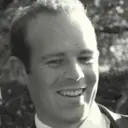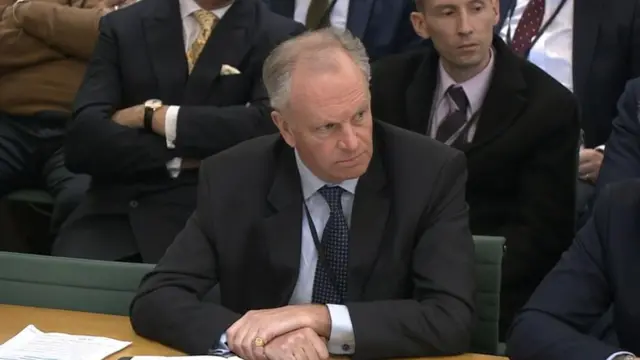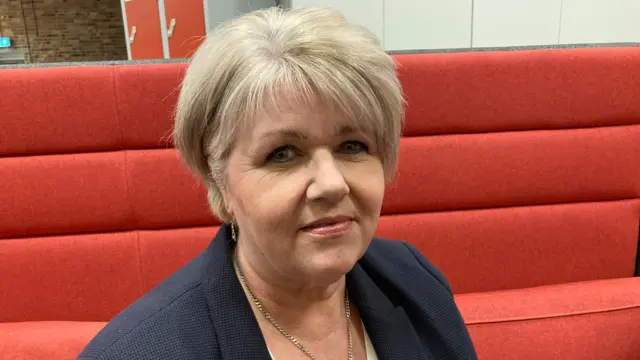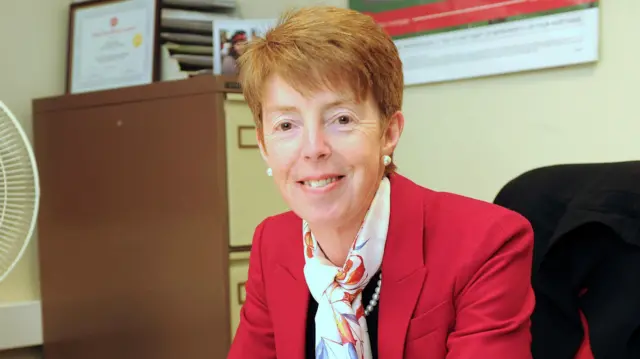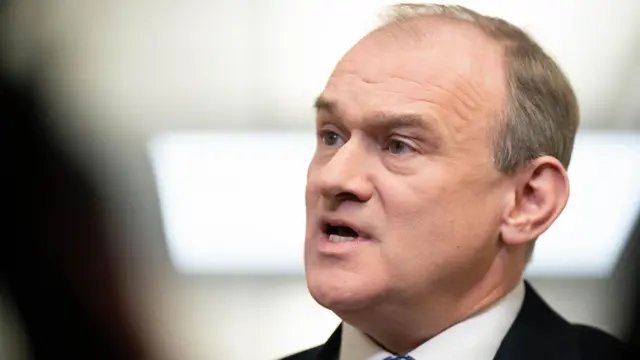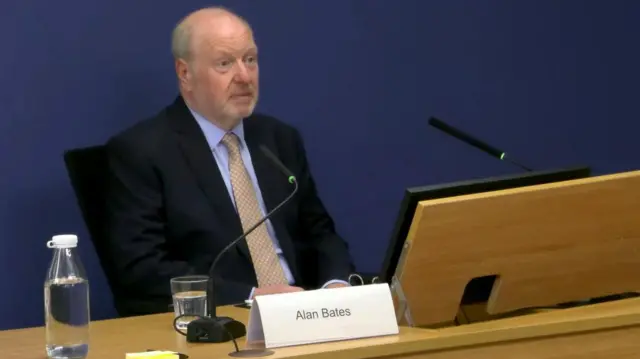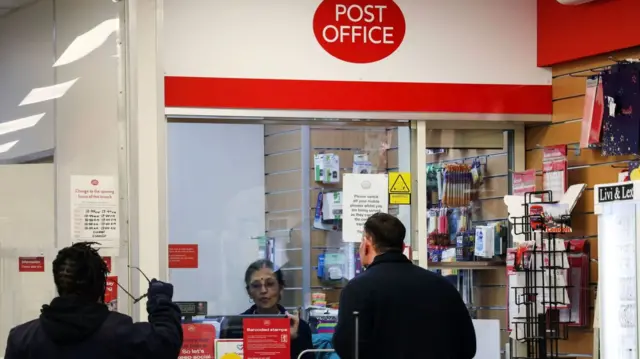How much did Post Office bosses get paid?published at 15:18 BST 9 April 2024
Ben King
Business reporter
We've been hearing from Alan Bates on his efforts to uncover the truth about Horizon but how much did the people running the Post Office get paid while the flawed system was in place?
By looking through the company accounts for the Post Office and Royal Mail, the BBC has come up with a figure - £19.4m over 24 years.
Before 2012, Royal Mail and the Post Office were part of the same organisation - and its three successive chief executives, John Roberts, Adam Crozier and Dame Moya Greene, made a total of £12.8m. All three of them are due to appear at the inquiry.
From 2012 onwards, the chief executives of the separated Post Office, Paula Vennells then Nick Read, have made a total of £6.5m.
That's an average of less than £1m a year - compared to the £3.91m the average boss of Britain's 100 biggest listed companies earned in 2022. It's a huge sum compared to the salary of average workers, or for sub-postmasters still waiting for compensation.
The Post Office argues that it's a very large, complex business which has to compete with other organisations for talent, and uses external consultants to advise on executive pay.
So who are the Post Office bosses and what did each of them earn? Read our explainer to find out more.
